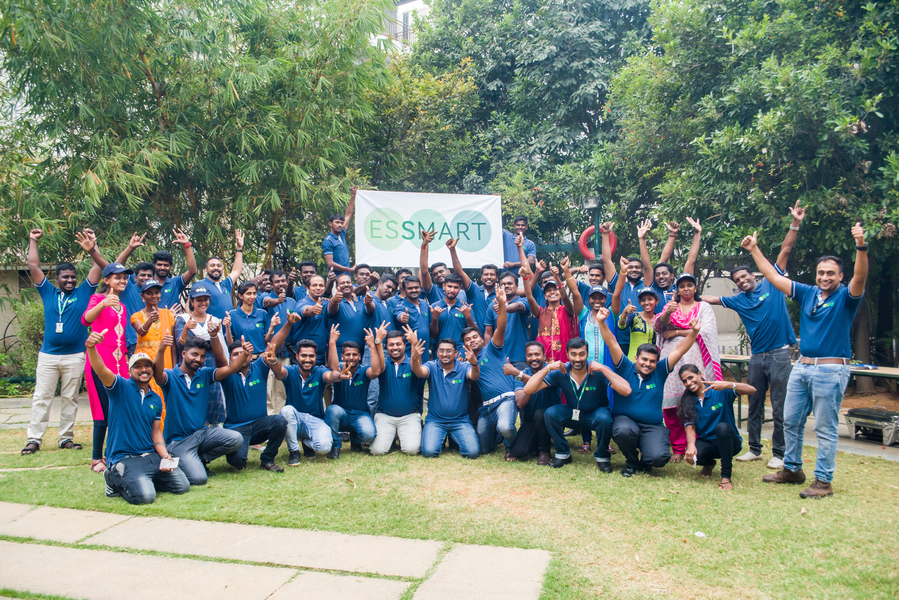IDEAS Alum: Essmart featured in MIT News!

Image courtesy MIT News and Essmart
Universities like MIT have produced a number of innovative products for people in low-resource communities around the world. But in order for those products to make an impact, they have to be manufactured at scale, get through local supply chains, and, most importantly, make enough of an impression that people actually want to buy them.
All of those challenges can erode the economics of deploying new products and ultimately limit their adoption. For the last 11 years, the MIT spinout Essmart has been helping new products reach consumers by partnering with the small retail shops that form the backbone of rural economies across the globe.
The company, which currently works with nearly 5,000 retail shops around India, offers a catalogue of more than 400 products to shop owners. Essmart offers products that improve the lives of buyers, whether by increasing crop yields, improving air quality, or boosting the efficiency of their work. Agricultural tools make up the bulk of Essmart’s products, but the company’s catalogues also feature things like clean cookstoves and solar lighting.
After shops place orders, Essmart arranges the sourcing of the products, shipping, and customer service. The company also uses a mobile platform to provide things like product training and marketing materials.
The goal is to make selling what the company calls “social livelihood products” as easy as selling a Coca-Cola.
“We’re opening up a channel for places that otherwise wouldn’t have access to these products even though nearby families could really benefit from them,” say Essmart co-founder Taylor Matthews MBA ’13, who founded the company with Diana Jue-Rajasingh ’09 SM ’12 and former D-Lab student and instructor Jackie Stenson. “It’s fantastic to see a company you spent countless hours and years working on having an impact.”
Forming a team
As an undergraduate, Stenson studied mechanical engineering at Harvard University, but she became enthralled with MIT D-Lab’s approach to innovating in low-resource settings and ended up cross-registering for two D-Lab courses and being advised for her undergraduate thesis by D-Lab founding director Amy Smith.
After graduation, to help decide what kinds of environments and technologies to work with, Stenson spent two years traveling down eastern Africa working on different projects. She developed water-related technologies with an international nonprofit in Ethiopia, promoted plastics recycling with a community group in Kenya, deployed bicycle-powered machinery with a social enterprise in Tanzania, distributed agricultural tools for a nongovernmental organization in Malawi, and studied bicycle ambulances for a trust fund in Zambia.
Her takeaway was that impactful technologies already exist in many low-resource communities, but their dissemination and adoption — and thus, their impact — was uneven and lacking.
The insight led her to Cambridge University in the United Kingdom, where she studied technology dissemination.
Stenson returned to Cambridge, Massachusetts, in 2011. Shortly after her arrival, D-Lab lecturer Joost Bonsen connected her to Jue-Rajasingh, who was also studying the effects of new technologies on underserved communities as part of her master’s work at MIT.
“Joost said, ‘I have a co-founder for you,’” Stenson recalls. “It was the first time I had heard the word co-founder, and honestly it was the first time I had thought of being an entrepreneur.”
The founders partnered with Prashanth Venkataramana, who Stenson had met at Cambridge University, and later met Matthews at a pitch session hosted at the MIT Sloan School of Management, where Matthews was an MBA candidate.
The team used Essmart as a case study in several of Matthews’ courses and participated in the MIT $100K Entrepreneurship Competition. After graduating they received support from the MIT IDEAS Competition and the D-Lab Scale Up Fellowships program to move to India and work on Essmart full time.
Click here to read the full article on MIT News
Tags: Essmart, IDEAS, IDEAS Alumni Profiles, PKG Alumni, Tech for Good
